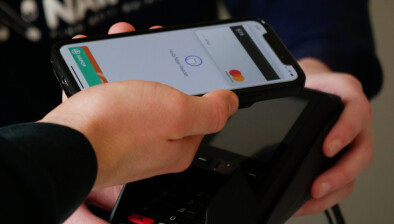Apple accused of breaching DMA over steering rules and third-party app stores

The European Commission has accused Apple of breaching the Digital Markets Act (DMA) over the rules it imposes on app developers in relation to steering and third-party app stores.
Under the DMA, developers distributing their apps via Apple’s App Store should be able, free of charge, to inform their customers of alternative cheaper purchasing possibilities, steer them to those offers and allow them to make purchases.
However, the Commission’s preliminary view is that none of the three sets of business terms governing Apple’s relationship with app developers allow them to freely steer their customers.
For example, developers cannot provide pricing information within the app or communicate in any other way with their customers to promote offers available on alternative distribution channels.
Under most of the business terms available to app developers, Apple allows steering only through “link-outs”, meaning that app developers can include a link in their app that redirects the customer to a web page where the customer can conclude a contract.
The link-out process is subject to several restrictions imposed by Apple that prevent app developers from communicating, promoting offers and concluding contracts through the distribution channel of their choice.
While Apple can receive a fee for facilitating via the App Store the initial acquisition of a new customer by developers, the Commission says the fees charged by Apple go beyond what is strictly necessary for such remuneration. Apple charges developers a fee for every purchase a user makes within seven days after a link-out from the app.
Apple now has the right to reply to the Commission’s preliminary findings before a non-compliance decision can be adopted within 12 months from the opening of proceedings on 25 March 2024.
The Commission has also opened a further non-compliance procedure against Apple in relation to the rules around third-party app stores, which have been introduced in response to the DMA.
Apple requires developers of third-party app stores and third-party apps to pay a €0.50 fee per installed app, called the “Core Technology Fee”. The Commission will investigate whether this fee structure effectively complies with the DMA.
It will also examine the multi-step user journey involved in downloading and installing alternative app stores or apps on iPhones, and the eligibility requirements for developers related to the ability to offer alternative app stores or directly distribute apps from the web on iPhones.
In parallel, the Commission will continue undertaking other preliminary investigative steps, in particular with respect to the checks and reviews put in place by Apple to validate apps and alternative app stores to be sideloaded.
Margrethe Vestager, the Commission’s executive vice-president in charge of competition policy, said: “Today is a very important day for the effective enforcement of the DMA — we have sent preliminary findings to Apple.
“Our preliminary position is that Apple does not fully allow steering. Steering is key to ensure that app developers are less dependent on gatekeepers’ app stores and for consumers to be aware of better offers.
“We have also opened proceedings against Apple in relation to its so-called core technology fee and various rules for allowing third party app stores and sideloading. The developers’ community and consumers are eager to offer alternatives to the App Store. We will investigate to ensure Apple does not undermine these efforts.”
Thierry Breton, commissioner for the internal market, added: “Apple’s new slogan should be ‘act different’. Today we take further steps to ensure Apple complies with the DMA rules.
“We have reason to believe that the AppStore rules not allowing app developers to communicate freely with their own users is in breach of the DMA. We are also opening a new case in relation to Apple’s new business terms for iOS.
“Without prejudice to Apple’s right of defence, we are determined to use the clear and effective DMA toolbox to finally open real opportunities for innovators and for consumers.”







